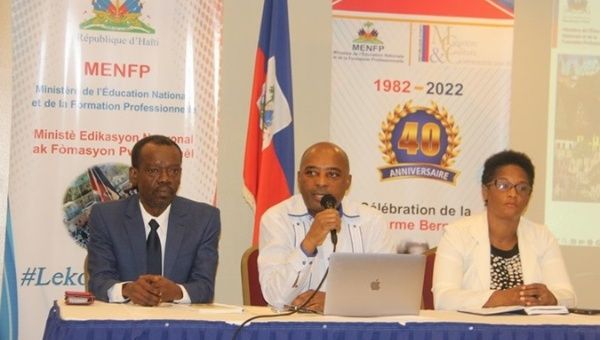PORT-AU-PRINCE, Nov 8 (NNN-TELESUR) — Haiti’s Ministry of Education has presented the new Curricular Orientation Framework that introduces changes in subjects and adds others such as citizenship education.
Citizenship education will be taught from preschool through the last year of high school, explained the Minister of National Education and Vocational Training Nesmy Manigat, who said that the subject will be reinforced and will include elements of cultural rights, duties, economic rights, respect for nature and gender equity.
In addition, preschool education will be compulsory, and schools will teach physical and artistic expression, initiation in mathematics, language and communication, as well as discovery of the world.
“Creole (Haitian) will be the language of instruction from preschool through the last year of high school. French will also be taught as one of the country’s official languages,” Manigat said in an official statement.
The tweet reads, “The Ministry of National Education and Vocational Training (MENFP) presented the new Curricular Orientation Framework (COC) to the press on Monday, November 6, 2023 at the Royal Oasis hotel. During this presentation, Minister of Education Nesmy Manigat emphasized the major changes to this curriculum, in particular the place given to citizenship education.”
Furthermore, he stressed that the country’s geographic position obliges its inhabitants to know Spanish and English, so a command of one of these two languages will be a requirement for students.
Under the new curriculum, which is due to come into effect next academic year, students will follow a four-stage pathway, from preschool through basic and secondary education to higher education.
Manigat expects the new curriculum to provide better indicators of quality and equity in basic education, as well as an increase in the number of graduates and a higher number of professionals with nationally and internationally recognized competencies. — NNN-AGENCIES







